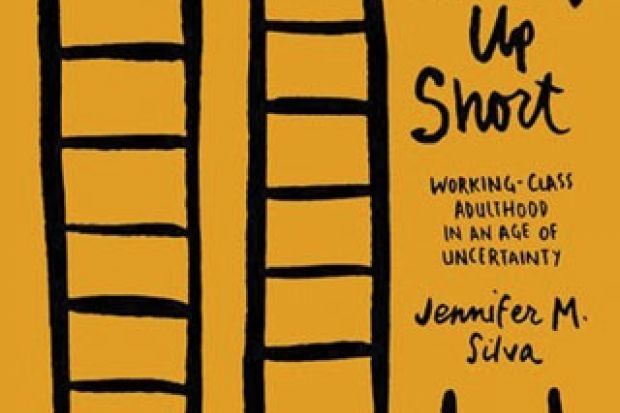In Coming Up Short, Jennifer Silva offers an interesting analysis of the life stories of 100 working-class men and women, aged 24 to 34, living on the East Coast of the US. The narratives capture the way in which these young adults’ transition to adulthood differs markedly from that of previous generations. Whereas their parents and grandparents could expect steady employment, marriage, home ownership and children, this generation have been forced to “dramatically reimagine” adulthood. Silva identifies four key changes disrupting their transition: “the rise and fall of risk-pooling and social safety nets; the ascendance of neoliberal ideology and policy; the decline of the industrial working class; and the cultural transformations across gender and race”. Their stories provide a compelling account of how economic insecurity, coupled with the individualism of the Reagan/Thatcher era, limits the ability to make choices, participate in community life and connect intimately. The outcome, says Silva, is a “mood economy” that “dovetails with neoliberalism by privatizing happiness”.
“Legitimacy and self-worth are purchased not with traditional currencies such as work or marriage or class solidarity,” she observes, but through the ability to organise emotions into a “narrative of self-transformation”. This inward-looking therapeutic narrative – identifying pathological thoughts and behaviours, locating these in one’s past, giving voice to this suffering by sharing with others, and triumphing over this past by becoming an independent self – makes freedom possible. Interestingly, Silva fails to connect the ways in which this narrative resonates with the Protestant template of testimonials and being born again. In their 2004 book Sacred and Secular: Religion and Politics Worldwide, Robert Inglehart and Pippa Norris demonstrate the inverse correlation between low socio-economic security and high religiosity. It is hardly surprising, then, that such therapeutic and religious narratives of recovery from the past and constructing a new self appeals to a disoriented and powerless working class.
The young people Silva encounters are buried in student loan debt and have grown up in homes marked by divorce, violence and drug abuse. Following a path well worn by Anthony Giddens, Silva contends that the move away from traditional marriage towards more equitable gender roles has rendered the institution “fragile”. Hesitant to repeat their parents’ mistakes, the interviewees are afraid to believe in “forever” and “traditional” marriage. “They depend on others only at great cost”; and it is this “hardened self” that makes intimacy, community, class solidarity and even politics impossible, and often reinforces divisions of race and gender. Rather than looking to socio-economic systems, individuals blame themselves for “lacking the tools they need to navigate their futures”. In the early 1990s, Celia Kitzinger and Rachel Perkins argued that the turn to psychological explanations for homophobia served to individualise this “problem”, leaving the larger social structures of heteronormativity unchallenged. Silva is equally frustrated with this move to the therapeutic model; by the book’s conclusion, the reader is desperate for her to offer some direction for a way back to engaged politics – beyond (to quote Cher’s character in the film Moonstruck) “Snap out of it!”
Throughout Coming Up Short, Silva attends to differences of race and gender, but mentions sexual orientation only occasionally. Of course, there is only so much one can cover in one monograph, right? Nevertheless, it is good practice to entertain a counter-argument. Over the past 20 years, the gay and lesbian movement, many of whose members are working class, have been engaged politically for the sole purpose of achieving traditional markers of adulthood – job security, marriage, family, joint mortgages. How does this trouble Silva’s account? For example, in telling the story of a young man named Justin, she defines his coming out as a “brave discovery of his adult self”. But Silva offers no analysis of how his story is unlike those of others she interviewed. Is Justin different because he was forced by heteronormativity to do the therapeutic work first and now, as an adult, finds himself free to make choices about his life? Are the others, unable to achieve normativity as easily as previous generations, being forced to do the therapeutic work so they can become adults with choices in this new economic and cultural fluidity?
Fortunately, Silva has found an academic home at Harvard University in the stable of the eminent political scientist Robert Putnam – undoubtedly a marker of adulthood. It is to be hoped that she will now turn her considerable talents to mapping alternative narratives of solidarity and finding signs of a route back from therapy towards political engagement.
Coming Up Short: Working-class Adulthood in an Age of Uncertainty
By Jennifer M. Silva
Oxford University Press, 288pp, £19.99
ISBN 9780199931460
Published 29 August 2013
Register to continue
Why register?
- Registration is free and only takes a moment
- Once registered, you can read 3 articles a month
- Sign up for our newsletter
Subscribe
Or subscribe for unlimited access to:
- Unlimited access to news, views, insights & reviews
- Digital editions
- Digital access to THE’s university and college rankings analysis
Already registered or a current subscriber?





